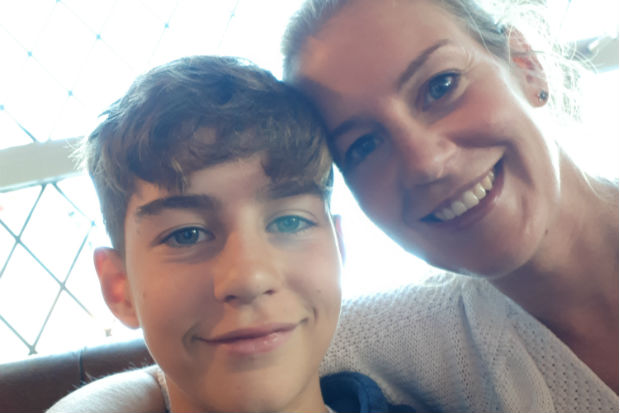Personal disability stories: Part 8 – Emma and Therese’s stories
By Emma & Therese | GOV.UK, January 11, 2019

Happy New Year to all my readers.
I would ask that we take a moment to consider the workplace experience of colleagues with autoimmune conditions, which are non-visible.
Our immunHappy New Year to all my readers.e systems guard against germs like bacteria and viruses by sending out white blood cells to attack them. Unfortunately, in some cases, the immune system can mistakenly attack healthy cells, including the central nervous system, joints and other organs. This can result in autoimmune diseases such as Type 1 diabetes, rheumatoid arthritis, multiple sclerosis, lupus and inflammatory bowel disease.
Some people are more likely to contract an autoimmune condition than others, with women twice as likely as men. Research has not identified the exact cause of these conditions, and treatment often focuses on reducing immune activity and treating symptoms.
Emma and Therese are Band As (Grade 7 equivalent) in the Government Security Group within the Cabinet Office. Both have autoimmune disabilities, though seeing and listening to them, you would not think there was anything amiss. As with many disabilities, their conditions are non-visible.
Emma and Therese’s personal stories provide helpful insights into how autoimmune conditions can affect individuals, and the type of support that can help them to overcome the challenges they experience and to maintain a full career.
Emma’s story

I was diagnosed in July 2017 with the lifelong condition multiple sclerosis (MS), for which there is currently no cure.
It all started when I fell whilst playing football with my son at the park. I woke up the next day with pins and needles in both my legs and feet; the kind of sensation you have after sitting on your feet for too long. After a number of tests the diagnosis was arrived at quite quickly.
Since that initial diagnosis and returning to a high-profile work role on a very busy program, I have experienced further ‘relapses’, which have mainly resulted in the loss of power in my legs. However, thankfully, this has been restored after rest and steroid treatments.
Therese’s story

I have a connective tissue disease called Sjogrens syndrome, and have recently been told I may also have Lupus. Autoimmune conditions are often related and notoriously difficult to diagnose. These are not as well known as MS, but still have very similar symptoms, such as overwhelming fatigue, muscle spasms, migraines, neurological pain and numbness in parts of the body.
I had a stroke some years ago as, over time, the chronic inflammation caused by autoimmune diseases can take its toll on many major organs in the body. I also have Myoclonic seizures on an almost daily basis. These have to be controlled by a raft of medication, so the flexibility of working from home allows me to deal with the side-effects of the medication such as extreme fatigue.
How does our condition affect us?
As everyone is unique, no two people have the same experience of these conditions, which makes it hard to manage. Therefore, we have both tried a plethora of drugs to help dull down the symptoms, but there is a fine balance between managing symptoms and still being able to function, as the medication often has a sedating effect.
So, every day we wake up wondering how we are going to be feeling, as no two days are the same. Therefore, we take each day as it comes. We have both been through the change curve, from thinking ‘why me?’ and ‘it’s not fair!’ but then quickly realizing that this does not make things any better and putting things into perspective.
If anything, having these conditions has made us much stronger people and has meant that we look at life from a different perspective. We step back more and ask, ‘is it really a big deal?’, and make the most of each day, focusing on what is important.
What support do we need?
We both work full-time on challenging and demanding programs. However, we would not want it any other way, as making a solid contribution is what keeps us going.
We have received tremendous support from our line managers, teams and HR. For example, as appropriate adjustments, we both work at home the vast majority of the time to limit travel into London, which can be stressful for anyone! We also work more flexible hours based around how we are feeling, to help manage the fatigue, making effective use of available IT. Our colleagues have played their part in making the extra effort to include us fully in the team, such as ensuring that dial-in facilities are always available for meetings.
It was not until we had read the OH reports and saw the word ‘disability’ that we even realized that what we had was classed as one. It was quite an enlightening and emotional moment. Since then we have sought to raise awareness of autoimmune conditions and to encourage others to access the support they need.
Speaking out can be daunting, but based on our experience there are tremendous benefits in doing so. We have both accepted that things are what they are and it is down to us to turn things around, making an unfortunate situation a positive one!
Learn about disability at work
I am indebted to Emma and Therese for sharing their personal stories and for inspiring me, and hopefully others, to do more to raise awareness of autoimmune conditions.
To learn more about disability at work you can complete some or all of the Becoming Disability Confident e-learning, or find out more about particular conditions through charities such as Lupus UK, The MS Society, and through the NHS website.
Their story also serves as a useful reminder that only 20% of people are born with their disability and that disability is often acquired during their working lives. If you too have acquired a disability since joining the Civil Service and, perhaps like Emma and Therese, only realized that you have a disability after reading about it, why not check that your disability status information on your department’s HR system is up to date.
About This Article:
A Life Worth Living has copied the content of this article under fair use in order to preserve as a post in our resource library for preservation in accessible format. Explicit permission pending.
Link to Original Article: https://civilservice.blog.gov.uk/2019/01/11/personal-disability-stories-part-8-emma-and-thereses-stories/

